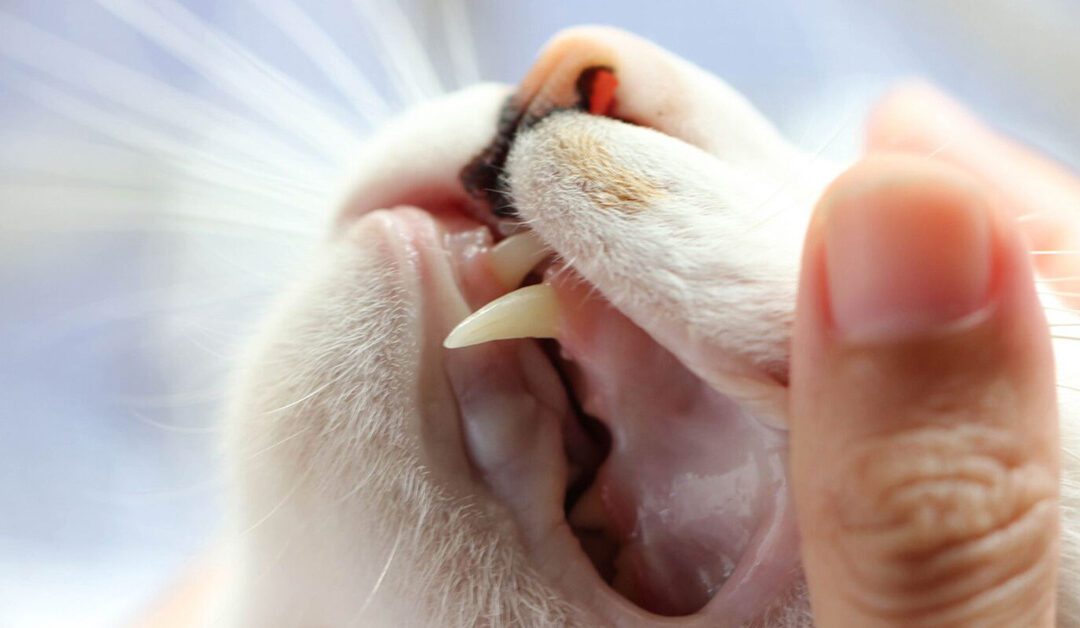Cats tend to not get the same level of veterinary attention that dogs do, in part due to their amazing ability to hide health issues from even the most observant owner. Feline dental care is no different, with far fewer cats receiving attention for their teeth than dogs. Cat oral health is very important, though, and Androscoggin Animal Hospital is happy to help you understand how to do better in the feline dental care department.
Common Cat Oral Health Issues
There are a few dental problems that our veterinarians commonly diagnose in our feline patients. Understanding these issues (and how to prevent them) can help any cat owner be more aware of cat oral health in general.
Common dental issues in cats include:
- Periodontal disease: When plaque and tartar accumulate on the teeth, it can harbor bacteria and cause inflammation that leads to the destruction of the periodontal ligament that holds the tooth in place. This inflammation and infection can also affect the local soft tissues, bone, and even enter the bloodstream.
- Gingivostomatitis: Some cats experience a reaction to the plaque on their own teeth, resulting in painful intraoral swelling. Some cases are mild, but severe cases can cause extreme discomfort.
- Feline oral resorptive lesions: FORLs are a cat-specific phenomenon in which cavity-like holes appear in the tooth itself near the gumline. We do not know what causes these to occur, but this abnormal resorption of the tooth can be quite painful.
Many cat oral health troubles can be very difficult to assess in an awake patient without radiographs (X-rays). Routine anesthetized dental exams should be part of any good wellness care plan.
The Importance of Cat Dental Hygiene
Despite our best efforts, most pets over the age of three have some form of dental disease. Untreated, this can lead to serious consequences.
Cats suffering from dental problems may experience:
- Oral pain
- Reluctance to allow their mouth to be examined
- Bleeding from the mouth
- Bad breath
- Weight loss
- Poor grooming habits
- Picky appetite
Typically, though, these signs are not noted until things are pretty bad. This makes the importance of cat dental hygiene paramount, and offers us the opportunity to notice trouble and intervene before it becomes serious.
Home Feline Dental Care Tips
There is plenty that you can do to provide good feline dental care for your pet. While the most important piece of good dental care for cats lies in allowing routine anesthetized exams and cleanings, you can play a big role at home as well.
Support good cat dental hygiene at home by:
- Brushing your cat’s teeth if they allow
- Utilizing products such as treats, food, water additives, and sprays approved by the Veterinary Oral Health Council to support good dental health
- Pay close attention to changes in your cat’s habits and physical traits
- Keep up on your cat’s annual wellness exam to stay on top of dental health
Tooth brushing and home oral care products can provide a lot of benefits, but cats still need to visit the dentist from time to time. Schedule an appointment for your pet’s oral examination, especially if you are noticing signs of a problem. Cats deserve good dental care, too!

